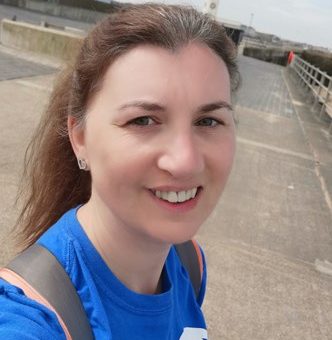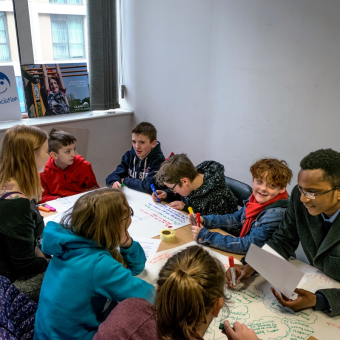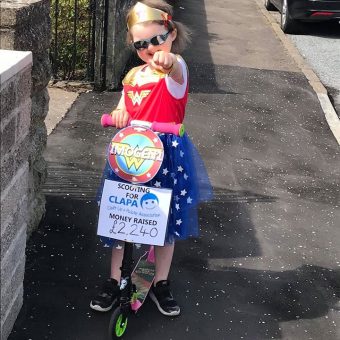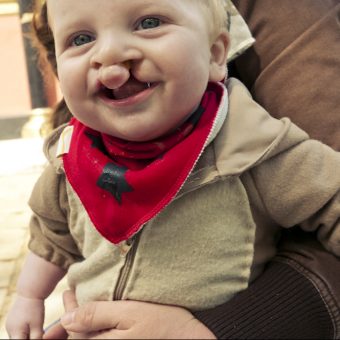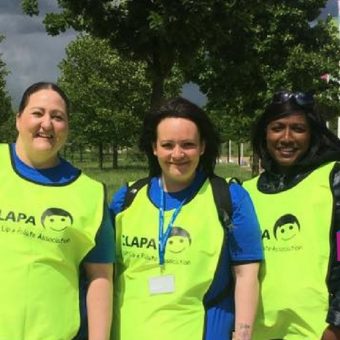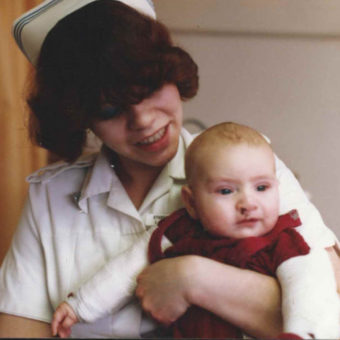
Tell Your Story

Every smile tells a story. This Cleft Lip and Palate Awareness Week (4th – 12th May 2024), join us in busting myths and raising awareness by sharing what cleft means to you.
What’s the Story Behind Your Smile?
During Awareness Week, we want you to share your cleft story with the people you know on social media and beyond. Celebrate what makes your journey different, and help us make the world a better, brighter, kinder place for people affected by cleft.
Jump To:
Getting Started: How to tell a great story
Key Messages: Make sure your story helps to bust some myths!
Story Templates: Post or blog templates to help you tell your story
Fundraising Page Story Template: Share your story to encourage people to donate to your fundraiser
Other Resources: Links to help inspire and inform you
Getting Started
There are so many ways to share your story, from writing a blog post to recording a short video. Even an Instagram caption can educate a whole new audience about cleft!
Why do you want to tell your story?
Do you want to celebrate how far you’ve come? Open up about difficult experiences? Educate others to help them be kinder and more understanding?
Whatever the reasons, note them down and keep them in mind. You could even start your story by explaining why you want to tell it.
What are the ‘key’ moments in your story?
What are some strong memories you have related to cleft? These might be big things, like diagnosis or surgery, or small things, like the first time you used a straw.
Pick one of these moments and start writing whatever comes to mind! You can edit it later; for now, just get it on the page.
How did you feel? What were you thinking? What do you remember about the sights, sounds and smells? What is it like to look back on it now?
Key Messages
Here are some important messages about cleft lip and palate that you can include in your story to help you raise awareness. We’ve included some question prompts to help you get started.
Proud to be ‘one in 700’
One in 700 babies is born with a cleft around the world. That’s three every day in the UK alone. A cleft can happen in any pregnancy, even with no known family history.
Everyone will know someone affected by cleft in their lifetime.
This May, celebrate what makes us different as well as what brings us together. Start or finish your story with ‘I’m proud to be one in 700’ or ‘I’m proud that my child is one in 700’!
There’s no ‘quick fix’ for a cleft
Some people believe that a cleft is all ‘fixed’ with a simple surgery. But we know that being born with a cleft is about much more than what happens in the operating theatre.
The cleft treatment pathway is 20 years long and can involve multiple complex surgeries and other treatments. A cleft can affect feeding, hearing, speech, teeth and more. As children grow up, it can affect self-esteem, especially if they face staring, comments or even discrimination. All of these can impact on educational attainment and make it harder for people born with a cleft to reach their full potential.
- What impact has cleft had on other areas of your life, and what kind of support have you needed?
- As an adult, have you struggled to get the treatment or support you need? Have others in your life treated your condition as seriously as they should?
- What do you think would surprise other people the most about your cleft journey?
A cleft isn’t just ‘cosmetic’
When most people think of a cleft, they think of a cleft lip. They might even say ‘cleft palate’ when referring to a cleft lip.
45% of babies born with a cleft have a cleft palate without a cleft lip. A cleft palate can have a lasting and profound impact, but because it’s not ‘visible’ from the outside, most people know very little about it. Some families can struggle to get a diagnosis for weeks or even years.
- What’s it like dealing with an ‘invisible’ condition?
- Did you struggle to feed your baby because of a cleft palate? How did this affect you?
- Half of all children born with a cleft need ongoing speech therapy. What is it like to struggle to communicate?
The right support makes a big difference.
At difficult times like diagnosis or surgery, having the right support can make all the difference. But as many people don’t know much about cleft, friends and family members might struggle to understand what’s going on and how they can help.
- During the difficult times in your journey, what kind of support really helped you?
- Was there anything that didn’t help, like a well-meaning but insensitive comment from a friend?
- What do you wish others had done to support you?
- If you could tell your ‘past self’ anything, what would it be?
During Awareness Week, we’ll be sharing a list of tips and stories from the community about how others can support people in their lives affected by cleft. Add your own here. Some examples so far include:
- Practical support like babysitting or helping with household chores during surgeries
- Focusing on health and wellbeing instead of on how someone looks, especially following a lip repair surgery
- Giving people affected by cleft space to talk and be upset about their experiences without judgement
- Workplaces and schools ensuring their attendance or sick leave policies aren’t discriminatory
What’s the takeaway?
What’s one thing you want someone to remember about your story?
- Share a tip for supporting people affected by cleft
- Share something you wish you’d known about cleft lip and palate
- Ask people to visit the Awareness Week hub at CLAPA.com/CleftAware
Story Templates
Use one of these templates to tell your story on a blog, social media, or as a script to record a video.
Feel free to edit these to suit your story or to cut out areas you’re not comfortable sharing.
Note: Ahead of Cleft Lip and Palate Awareness Week, we’ll share some different ‘Proud to be One in 700’ graphics, which you can post along with your story if you like.
For adults and young people born with a cleft
4th-12th May is Cleft Lip and Palate Awareness Week.
One in 700 babies is born with a cleft; that’s three every day in the UK. Already, they face a 20-year treatment pathway, with many having their first surgery at just three months old.
I’m proud to be one in 700!
I was born with a [what kind of cleft do you have? E.g. ‘cleft palate’], which is [explain what the cleft is, e.g. ‘a gap in the roof of the mouth’].
A cleft isn’t just cosmetic, and there’s no ‘quick fix’. I’ve had [list some operations or treatments you’ve had, e.g. ‘two operations and three years of braces’].
The hardest part of my journey has been [think about the part of your journey when you struggled the most, e.g. dealing with operations or soft food diets. The more detail you can give here, the better!]
If you know someone affected by cleft like me, [give some advice about how they can support people like you, e.g. ‘don’t stare’ or ‘be patient when we’re speaking’]
Head to CLAPA.com/CleftAware to learn more.
#CleftAware
For parents, carers and family members:
4th-12th May is Cleft Lip and Palate Awareness Week.
One in 700 babies is born with a cleft; that’s three every day in the UK. Already, they face a 20-year treatment pathway, with many having their first surgery at just three months old.
I’m proud that my [child/daughter/son] is one in 700!
My [child/son/daughter] was born with a [what kind of cleft do they have? E.g. ‘cleft palate’], which is [explain what the cleft is, e.g. ‘a gap in the roof of the mouth’].
A cleft isn’t just cosmetic, and there’s no ‘quick fix’. We’ve already dealt with [list some treatments or issues, e.g. ‘two operations and struggles with feeding’].
The hardest part of my journey has been [think about the part of your journey when you struggled the most, e.g. right after diagnosis or . The more detail you can give here, the better!].
What helped the most was [What gave you support during this time? Maybe it was a friend or family member? Maybe it was a CLAPA support service? If you don’t feel like you had enough support, you could say ‘What would have helped was…’]
If you know someone affected by cleft like me, [give some advice about how they can support people like you, e.g. “don’t say ‘it could be worse’ or ‘it’ll all be fixed soon’, just let us talk about our worries’]
Head to CLAPA.com/CleftAware to learn more.
Story Template for Fundraising Pages
Longer stories work great for fundraising pages, but if you’re after something short and sweet, use this handy template for Awareness Week:
4th-12th May is Cleft Lip and Palate Awareness Week.
One in 700 babies is born with a cleft; that’s three every day in the UK. Already, they face a 20-year treatment pathway, with many having their first surgery at just three months old.
During Cleft Awareness Week, I will be [insert your fundraising challenge; e.g. “walking ten miles each day”] to raise money for CLAPA so they can support families like mine for years to come.
[Explain your fundraising challenge here in a bit more detail. Who will you be doing it with? How will you do it?]
I/we are doing this because…
[Now, it’s time to write about why this matters to you! In a few short paragraphs, tell people…
- What’s your connection to cleft lip and palate?
- What’s one huge moment you remember that you can share here? See below for tips!
- Did any of CLAPA’s services help you? How?
- Why are you fundraising?
The more personal you can make it, the better!]
CLAPA is the UK’s cleft lip and palate support charity. They support people from the moment of diagnosis with reassurance, information, and a welcoming community. They make sure no one affected by cleft in the UK goes through their journey alone.
CLAPA needs your help to continue to reach hundreds of families and adults in need each year. As a small charity, every pound counts, so please give generously to help fund their life-changing services.
Other Resources
See our Media Guidelines for information on cleft lip and palate, including facts and guidance on writing and talking about clefts.
Existing stories: Parents & Carers
Existing stories: Young people
Contacts
For enquiries about CLAPA, cleft lip and palate, and/or Awareness Week:
Anna Martindale
Head of Impact
[email protected]
